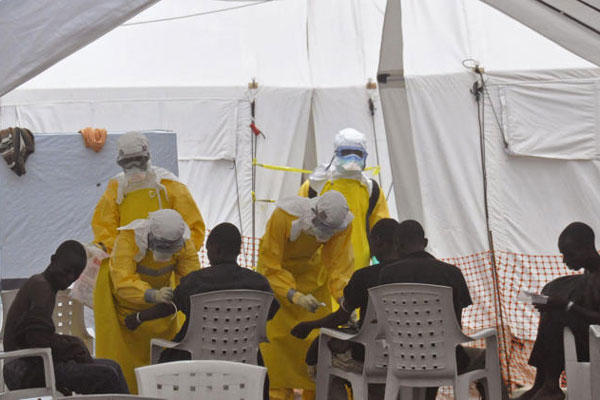The U.S. Army is rethinking how it's formed and how it operates, placing more focus on unconventional threats like Ebola and non-state actors like the Islamic State in Iraq and Syria (ISIS) versus conventional large-scale armies.
Army generals have rolled out the 2014 Army Operating Concept this week at the Army's largest annual convention hosted by the Association of the U.S. Army at Washington D.C. The document calls on the service to strengthen its focus on information warfare, psychological operations, and politics in order to more successfully adapt to today's threats.
While the Army has been focusing on counterinsurgency and counterterrorism for quite some time, the new concept challenges the service to think more broadly about different faces of conflict.
"Do we not owe the American people to be as good as our adversaries at this form of warfare when our interests are at stake? We're transitioning from an industrial-age Army – to an Army that is agile and retooling itself as we speak to take on some of the nation's most significant problems," said Lt. Gen. Charles Cleveland, head of U.S. Army Special Operations Command.
He added that the Army needs to be able to prevent and win conflicts without having to deploy and use its "iron mountain" of weapons, troops and equipment. While the Army can't completely discount conventional operations, it must operate on quickly changing battlefields that some soldiers might not immediately recognize.
"We can think differently about enemy organizations. Our enemies operate on multiple battlefields. Our Army cannot just function on a physical battlefield," said Lt. Gen. Herbert McMaster, Deputy Commanding General, Army Capabilities Integration Center, TRADOC.
In particular, there is a political and informational element to successful counterinsurgency, Army leaders explained.
As a result, the new Operating Concept calls upon an approach which recognizes the need to engage in political warfare and counter information.
"We have to begin to understand interests of the various groups and understand how to exert influence through cooperative means, persuasive means and ultimately through coercive means," McMaster added.
This strategy requires that the Army recognize the dimensions of today's global information age, build more alliances and work more aggressively on informational, political and cultural techniques to thwart enemies.
"There are over 7 billion people in the interconnected world that we live on. This requires that you have some form of persistent influences. We need to in a proactive preemptive way build those lash ups with those like-minded militaries so that we're ready when we have to deal with groups like ISIS," Cleveland said.
Cleveland, McMaster and defense analyst Max Boot emphasized the need to understand the local political and cultural dynamics of strategically vital parts of the world where the Army is likely to operate.
Boot, a Senior Fellow at the Council on Foreign Relations, pointed out how terrorist groups such as Hezbollah, the Islamic State, and the Iranian Quds Force use social media and information campaigns to indoctrinate and recruit followers.
Defeating groups such as this requires countering the disinformation campaign, working to win over local population and helping to establish credible and enduring government institutions in order to reduce the leverage or hold terrorist groups try to claim over local populations, Boot explained.
He said the U.S. military, along with its government partners, should become much more adept at political warfare.
"We need to figure out the insidious political hold terrorist organization have over populations and empower moderate organizations to wage political warfare. Political warfare can be much more decisive than kinetic warfare," Boot said.
Along these lines, Boot argued that the U.S. government would be well served to better emphasize nation-building in strategically vital parts of the world in order
"If we don't have nation-states down range able to create order – that creates gaps that give rise to groups like ISIS," Boot argued. "We have to focus on governance. We are never going to win the long war against Islamic extremists unless we focus on this."
-- Kris Osborn can be reached at kris.osborn@monster.com


























